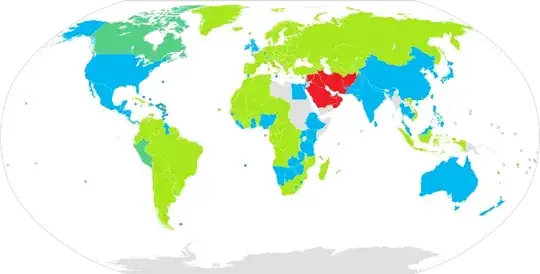I've just read this page http://weblogs.asp.net/scottgu/archive/2010/06/10/jquery-globalization-plugin-from-microsoft.aspx
One of the things they did was to convert the arabic date to the arabic calendar. I'm wondering if it is a good idea at all to do so. Will it actually be annoying/confusing for the user (even if the user is Arabic).
Also, my second question is that do we really need to change 33,899.99 to 33.899,99 for some cultures like German? I mean it doesn't hurt to do so since the library already does it for us but wouldn't this actually cause more confusion to the user (even if he is German, etc).
I'm sure whatever culture these people come from, if i give you a number 33,899.99 there's no way you'd get that wrong right? (unless my website/application is the first website/application you've ever used in your entire life, which arguably is possible but the probability is just that low)
I meant "universal" as the format that everyone will see and know what it means. It doesn't have to be some standard written in black-and-white and the like. As long as everyone can read it and know straightaway without confusion what the text is representing, that's universal. To be sure, 1.234,00 is definitely not universal. I mean i'm very sure you can find someone who in their entire lifetime, has been using computers yet have never came across this number format at all. Since most websites/apps had been using 1,234.00 without changes to accommodate localization, I believe that it has been the de-facto (the universal format that everyone will see and know what it means).
As for dates, if we write 01/02/03 I'm sure there's no way anyone will know (straightaway, rightaway, without ambiguity) what date it is. But no one can get Jan 2 2003, Feb 1 2003, Feb 3 2001 wrong if we wrote them as such isn't it?
Btw this question is targeting localization, don't tell me stuff like "Hey not everyone reads English alright!" because that is a matter of internationalization (which is beyond this topic). Let's stick to the discussion on localization.
